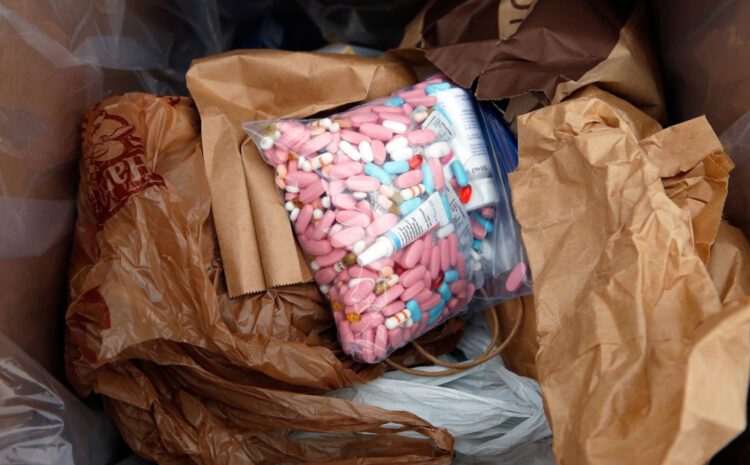How to dispose of medications

Si you completaste your treatment and there’s leftover medication or the medication has expired, it’s important to know that drugs cannot be disposed of like other products because they contain chemical substances that can contaminate soil and water. Moreover, someone may misuse them, putting their health at risk.
The correct procedure for disposing of unused or expired medications is as follows:
– Remove the medication from its packaging and mix it with other non-reusable waste (e.g., food scraps, coffee grounds, cat litter, soil, or sawdust).
– Place the mixture in a plastic bag or a well-sealed container that prevents leaks (e.g., an empty can) and throw it in the trash.
– Do not discard the medication together with its leaflet or any other information about the product.
– Make sure there are no visible details of the medication on the container, for example, remove the label or cover it with a marker.
– Before discarding needles, syringes, or any sharp or cutting items, store them in a rigid container and dispose of them in the non-recyclable trash bin.
– Insulin transport bags can be disposed of in the regular trash bin, as well as test strips, dressings, and gauze.
– Some areas have safe medication disposal programs at pharmacies. Consult your pharmacist for more information.
– Do not give leftover medication to friends or acquaintances. Doctors prescribe and provide instructions based on individual symptoms and health history.
– It is not recommended to accumulate leftover medication in your home. It is best to regularly review and remove expired medication, as well as those without original packaging or leaflet, which can lead to confusion and incorrect use.
How to dispose of containers, leaflets, and packaging:
– Glass is a completely recyclable material that saves 30% of energy compared to producing new glass.
– If a glass container is broken, it’s important to wrap it in newspaper and cardboard before disposing of it in the trash to prevent injury to people or animals who may come into contact with the glass.
– Different municipalities have different strategies for waste management and recycling. In the city of Buenos Aires, for example, there are “Puntos Verdes” (Green Points) open from Tuesday to Friday from 2 PM to 7 PM and Saturdays from 10 AM to 6 PM, where you can drop off papers, cardboard, plastics, and other recyclable waste.
Properly disposing of medications helps protect our environment and the health of everyone because it can:
– Contaminate drinking water, aquatic life, and soil.
– Accumulate in the tissues of living beings and later cause intoxications when consumed.
– Be illegally redistributed.
– Generate resistance in disease-causing microorganisms.
By making small daily decisions, you can contribute to the virtuous circle of environmental health and sustainable economy.
